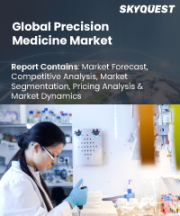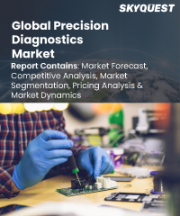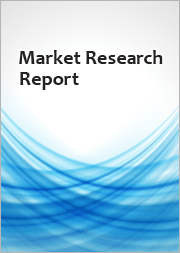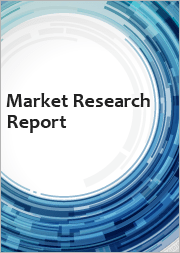
|
시장보고서
상품코드
1824166
정밀의료 시장 : 예측(2025-2030년)Global Precision Medicine Market - Forecasts from 2025 to 2030 |
||||||
정밀의료 시장 규모
정밀의료 시장은 2025년 1,092억 9,700만 달러에서 2030년에는 1,865억 600만 달러로 성장하며, CAGR은 11.28%로 예측됩니다.
정밀의료 시장 : 분석 개요
시장 개요
정밀의료는 맞춤형 의료라고도 하며, 의사가 환자 개개인의 유전적 이해를 바탕으로 치료법을 선택하는 의료 접근법을 말합니다. 시장은 주로 심혈관 질환, 비만 및 관련 질환을 포함한 만성질환의 유병률 증가에 의해 주도되고 있습니다. 이러한 맞춤 치료 접근법은 의료 시스템이 보다 표적화되고 효과적인 치료 개입을 추구하는 가운데 큰 지지를 받고 있습니다.
시장의 성장은 만성질환의 전 세계적 부담에 크게 영향을 받고 있습니다. 심혈관 질환은 전 세계 주요 사망 원인 중 하나이며, 전 세계 사망자 수의 약 31%를 차지합니다. 심혈관 관련 사망원인의 대부분은 뇌졸중과 심장마비로 인해 발생하며, 이는 정밀의료 접근법에 대한 큰 수요를 창출하여 보다 정밀한 예방 및 치료 전략을 제공할 수 있는 기회를 제공합니다.
만성질환에 적용
인지장애와 알츠하이머병
알츠하이머병 및 관련 인지장애는 정밀의료 기술의 중요한 용도입니다. 현재 예측에 따르면 알츠하이머병 환자는 크게 증가하고 있으며, 2050년까지 알츠하이머병에 걸린 미국인의 수는 약 1,400만 명에 달할 것으로 추산되고 있습니다. 이러한 인구 추세는 인지장애를 타겟으로 한 정밀의료 솔루션에 대한 지속적인 시장 수요를 견인하고 있습니다.
연구개발을 통해 치료 효과에 대한 중요 인사이트가 밝혀졌습니다. 버팔로 대학의 과학자들은 한 알츠하이머병 치료제가 동물 실험에서 유망 결과를 보였음에도 불구하고 인간을 대상으로 한 연구에서 실패한 이유로 미국인의 75%에 존재하는 인간 유전자가 관련되어 있다는 사실을 발견했습니다. 이 발견은 기존 치료법에 대한 정밀의료 및 접근법의 중요성을 강조하고, 유전자 정보에 기반한 치료 전략 시장 가능성을 보여줍니다.
당뇨병 치료에 대한 응용
당뇨병은 정밀의료 시장 성장의 또 다른 큰 촉진요인입니다. 미국 국립당뇨병-소화기-신장병연구소는 당뇨병 유전체-유전학 프로그램에서 정밀의료의 주요 우선순위를 정하고 있습니다. 이 프로그램은 1형 당뇨병과 2형 당뇨병에 대한 방어 기능을 제공하는 유전자 간 영역과 유전자를 규명하는 것을 목표로 하고 있습니다.
의료기관은 당뇨병 치료를 위해 정밀의료 기술을 도입하여 유망 결과를 내고 있습니다. 매사추세츠 종합병원의 연구에 따르면 개인의 유전자 프로파일과 데이터에 초점을 맞춘 개입이 2형 당뇨병 위험을 성공적으로 감소시켜 당뇨병 관리를 위한 정밀의료 접근법이 효과적이라는 것을 입증했습니다.
디지털 헬스 통합
의료 시스템은 디지털 헬스 프로그램을 통해 정밀의료 역량을 확장하고 있습니다. 루이지애나 헬스 시스템(Ochsner Health)은 환자에게 종합적인 디지털 헬스 솔루션을 제공하고, 소비자에게 직접 원격의료 서비스 및 제공 시스템을 개발하기 위해 많은 투자를 하고 있습니다. 이 조직은 향후 10년간 중환자실, 정신과, 뇌졸중 치료 용도에 대한 원격의료 서비스를 확대할 계획이며, 정밀의료와 디지털 의료 제공의 통합을 입증하고 있습니다.
암 치료에 대한 응용
암 치료는 정밀의료 시장 확대의 주요 촉진요인입니다. 암은 세계 제2의 사망원인이며, 연간 사망자 수는 960만 명에 달할 전망입니다. 암으로 인한 사망의 약 70%는 중저소득 국가에서 발생하며, 이는 정밀의료 솔루션 세계 시장 기회를 강조하고 있습니다.
암 치료 용도는 암 발생시 유전자 변화가 지속적으로 일어나기 때문에 정밀의료 접근에 특히 적합합니다. 과학자들은 개별 암 사례와 종양에 가장 적합한 치료 접근법을 결정하는 유전자 검사를 식별하고 시행하기 위해 노력하고 있습니다. 이러한 개별화된 접근법은 암의 병태생리학적 불균일성을 해결하고, 표적치료제 선택을 통해 치료 결과를 개선하고 있습니다.
연구개발 기관은 정밀의료 치료의 개발을 가속화하기 위해 종합적인 데이터베이스를 개발하고 있습니다. 여러 기관이 협력하여 두경부암 데이터베이스를 구축하여 정밀의료 치료법 개발 및 생산을 가속화하기 위해 노력하고 있습니다. 이 데이터베이스를 통해 주요 암 관련 단백질과 유전자를 밝혀내고, 암 경로에 대한 이해를 증진시키고 있습니다.
기술 발전과 파트너십
정밀의료 시장은 전략적 파트너십과 기술 혁신을 통해 계속 진화하고 있습니다. 유전자 염기서열 분석은 정밀의료 개발의 기본 요소이며, 완전한 유전체 프로파일링 기능의 발전에 초점을 맞춘 업계 협력이 이루어지고 있습니다. 이러한 파트너십은 여러 치료 분야에 걸쳐 새롭고 혁신적인 정밀의료 솔루션 개발을 촉진하고 있습니다.
시장 전망
정밀의료 시장은 만성질환의 확산, 기술 발전, 개인 맞춤형 치료 접근 방식의 의료 시스템 도입에 힘입어 강력한 성장 잠재력을 보여주고 있습니다. 유전자에 대한 이해와 임상 치료의 통합은 다양한 질환에 대해 보다 효과적이고 표적화된 치료 개입을 할 수 있는 기회를 창출합니다.
이 보고서의 주요 장점
- 인사이트 분석 : 고객 부문, 정부 정책 및 사회경제적 요인, 소비자 선호도, 산업별, 기타 하위 부문에 초점을 맞추고 주요 지역뿐만 아니라 신흥 지역까지 포괄하는 상세한 시장 인사이트를 얻을 수 있습니다.
- 경쟁 구도: 세계 주요 기업이 채택하고 있는 전략적 전략을 이해하고, 적절한 전략을 통한 시장 침투 가능성을 파악할 수 있습니다.
- 시장 성장 촉진요인과 미래 동향 : 역동적인 요인과 매우 중요한 시장 동향, 그리고 이들이 향후 시장 발전을 어떻게 형성할 것인지에 대해 알아봅니다.
- 실행 가능한 제안: 역동적인 환경 속에서 새로운 비즈니스 스트림과 매출을 발굴하기 위한 전략적 의사결정에 인사이트를 활용합니다.
- 다양한 사용자에 대응: 스타트업, 연구기관, 컨설턴트, 중소기업, 대기업에 유익하고 비용 효율적입니다.
어떤 용도로 사용되는가?
산업 및 시장 인사이트, 사업 기회 평가, 제품 수요 예측, 시장 진출 전략, 지역적 확장, 설비 투자 결정, 규제 프레임워크와 영향, 신제품 개발, 경쟁의 영향
분석 범위
- 과거 데이터(2022-2024년) 및 예측 데이터(2025-2030년)
- 성장 기회, 과제, 공급망 전망, 규제 프레임워크, 고객 행동, 동향 분석
- 경쟁사 포지셔닝, 전략 및 시장 점유율 분석
- 매출 성장률 및 예측 분석 : 부문별/지역별(국가별)
- 기업 프로파일링(전략, 제품, 재무정보, 주요 동향 등)
목차
제1장 개요
제2장 시장 스냅숏
- 시장 개요
- 시장의 정의
- 분석 범위
- 시장 세분화
제3장 비즈니스 상황
- 시장 성장 촉진요인
- 시장 성장 억제요인
- 시장 기회
- Porter's Five Forces 분석
- 업계의 밸류체인 분석
- 정책과 규제
- 전략적 제안
제4장 기술 전망
제5장 세계의 정밀의료 시장 : 기술별
- 서론
- 데이터 분석(AI/ML 포함)
- 바이오인포매틱스
- 유전자 배열 해석
- 유전체학/기능 유전체학
- 단백질체학
- 대사체학
- 디지털 헬스 기술
- 동반진단
제6장 세계의 정밀의료 시장 : 용도별
- 서론
- 종양
- 중추신경계 질환
- 면역 질환
- 심혈관질환
- 희귀질환
- 감염증
- 호흡기질환
- 대사장애
- 혈액 질환
제7장 세계의 정밀의료 시장 : 지역별
- 서론
- 북미
- 미국
- 캐나다
- 멕시코
- 남미
- 브라질
- 아르헨티나
- 기타
- 유럽
- 독일
- 프랑스
- 영국
- 스페인
- 기타
- 중동 및 아프리카
- 사우디아라비아
- 아랍에미리트
- 기타
- 아시아태평양
- 중국
- 인도
- 일본
- 한국
- 인도네시아
- 태국
- 기타
제8장 경쟁 환경과 분석
- 주요 기업과 전략 분석
- 시장 점유율 분석
- 기업인수합병(M&A), 합의, 협업
- 경쟁 대시보드
제9장 기업 개요
- Thermo Fisher Scientific Inc.
- AstraZeneca plc
- F. Hoffmann-La Roche Ltd
- Pfizer Inc.
- Nordic Bioscience A/S
- Medtronic
- Novartis AG
- QIAGEN
- Quest Diagnostics Incorporated
- Bristol Myers Squibb
제10장 부록
- 통화
- 전제조건
- 기준연도와 예측연도 타임라인
- 이해관계자에 대한 주요 이점
- 분석 방법
- 약어
도표 리스트
표 리스트
KSA 25.10.10Precision Medicine Market Size:
The precision medicine market is expected to grow from USD 109.297 billion in 2025 to USD 186.506 billion in 2030, at a CAGR of 11.28%.
Precision Medicine Market Report Summary
Market Overview
Precision medicine, also known as personalized medicine, represents a medical approach where doctors select treatments based on genetic understanding of individual patients. The market is primarily driven by the increasing prevalence of chronic diseases including cardiovascular diseases, obesity, and related conditions. This personalized approach to treatment has gained significant traction as healthcare systems seek more targeted and effective therapeutic interventions.
The market growth is substantially influenced by the global burden of chronic diseases. Cardiovascular diseases represent one of the major causes of death worldwide, accounting for approximately 31% of global deaths. Most cardiovascular-related deaths result from strokes and heart attacks, creating substantial demand for precision medicine approaches that can provide more targeted prevention and treatment strategies.
Chronic Disease Applications
Cognitive Disorders and Alzheimer's Disease
Alzheimer's disease and related cognitive disorders represent significant applications for precision medicine technology. Current projections indicate substantial growth in affected populations, with estimates suggesting the number of Americans living with Alzheimer's disease could reach approximately 14 million by 2050. This demographic trend drives sustained market demand for precision medicine solutions targeting cognitive disorders.
Research developments have revealed important insights into treatment effectiveness. Scientists at the University of Buffalo discovered that a human gene present in 75% of the American population contributes to why certain Alzheimer's disease medications fail in human studies despite showing promising results in animal studies. This discovery highlights the importance of precision medicine approaches over conventional treatments and demonstrates the market potential for genetically-informed therapeutic strategies.
Diabetes Treatment Applications
Diabetes represents another major driver for precision medicine market growth. The National Institute of Diabetes and Digestive and Kidney Diseases has made precision medicines a major priority for its Diabetes Genomics and Genetics Program. The program aims to identify intergenic regions and genes that provide protection against type 1 and type 2 diabetes.
Medical institutions are implementing precision medicine techniques for diabetes treatment with promising results. Massachusetts General Hospital research demonstrated that interventions focused on individuals' genetic profiles and data successfully reduced type 2 diabetes risk, validating the precision medicine approach for diabetes management.
Digital Health Integration
Healthcare systems are expanding precision medicine capabilities through digital health programs. The Louisiana Health system (Ochsner Health) provides comprehensive digital health solutions to patients and has made substantial investments in developing direct-to-consumer telemedicine care services and delivery systems. The organization plans to expand telehealth services for ICU, psychiatry, and stroke care applications over the next decade, demonstrating the integration of precision medicine with digital healthcare delivery.
Cancer Treatment Applications
Cancer treatment represents a primary driver for precision medicine market expansion. Cancer ranks as the second major cause of death worldwide, with an estimated 9.6 million deaths annually. Approximately 70% of cancer deaths occur in lower and middle-income countries, highlighting global market opportunities for precision medicine solutions.
Cancer treatment applications are particularly suited for precision medicine approaches because genetic changes constantly occur in cancer development. Scientists are working to identify and conduct genetic tests that determine optimal treatment approaches for individual cancer cases and tumors. This personalized approach addresses the heterogeneity of cancer presentations and improves treatment outcomes through targeted therapeutic selection.
Research institutions are developing comprehensive databases to accelerate precision medicine therapy development. Collaborative efforts involving multiple organizations have compiled databases of head and neck cancers to speed development and production of precision medicine therapies. These databases provide clarification of key cancer-associated proteins and genes, resulting in advancement of cancer pathway understanding.
Technological Advancement and Partnerships
The precision medicine market continues evolving through strategic partnerships and technological innovation. Genetic sequencing represents a fundamental component of precision medicine development, with industry collaborations focused on advancing complete genomic profiling capabilities. These partnerships drive development of novel and innovative precision medicine solutions across multiple therapeutic areas.
Market Outlook
The precision medicine market demonstrates strong growth potential driven by chronic disease prevalence, technological advancement, and healthcare system adoption of personalized treatment approaches. The integration of genetic understanding with clinical care creates opportunities for more effective, targeted therapeutic interventions across diverse medical conditions.
Key Benefits of this Report:
- Insightful Analysis: Gain detailed market insights covering major as well as emerging geographical regions, focusing on customer segments, government policies and socio-economic factors, consumer preferences, industry verticals, and other sub-segments.
- Competitive Landscape: Understand the strategic maneuvers employed by key players globally to understand possible market penetration with the correct strategy.
- Market Drivers & Future Trends: Explore the dynamic factors and pivotal market trends and how they will shape future market developments.
- Actionable Recommendations: Utilize the insights to exercise strategic decisions to uncover new business streams and revenues in a dynamic environment.
- Caters to a Wide Audience: Beneficial and cost-effective for startups, research institutions, consultants, SMEs, and large enterprises.
What do businesses use our reports for?
Industry and Market Insights, Opportunity Assessment, Product Demand Forecasting, Market Entry Strategy, Geographical Expansion, Capital Investment Decisions, Regulatory Framework & Implications, New Product Development, Competitive Intelligence
Report Coverage:
- Historical data from 2022 to 2024 & forecast data from 2025 to 2030
- Growth Opportunities, Challenges, Supply Chain Outlook, Regulatory Framework, and Trend Analysis
- Competitive Positioning, Strategies, and Market Share Analysis
- Revenue Growth and Forecast Assessment of segments and regions including countries
- Company Profiling (Strategies, Products, Financial Information, and Key Developments among others.
Global Precision Medicine Market Segments:
By Technology
- Data Analytics (including AI/ML)
- Bioinformatics
- Gene Sequencing
- Genomics/Functional Genomics
- Proteomics
- Metabolomics
- Digital Health Technologies
- Companion Diagnostics
By Application
- Oncology
- Central Nervous System
- Immunology
- Cardiovascular
- Rare Diseases
- Infectious Diseases
- Respiratory Diseases
- Metabolic Disorders
- Hematology
By Geography
- North America
- USA
- Canada
- Mexico
- South America
- Brazil
- Argentina
- Others
- Europe
- Germany
- France
- United Kingdom
- Spain
- Others
- Middle East and Africa
- Saudi Arabia
- UAE
- Others
- Asia Pacific
- China
- India
- Japan
- South Korea
- Indonesia
- Thailand
- Others
TABLE OF CONTENTS
1. EXECUTIVE SUMMARY
2. MARKET SNAPSHOT
- 2.1. Market Overview
- 2.2. Market Definition
- 2.3. Scope of the Study
- 2.4. Market Segmentation
3. BUSINESS LANDSCAPE
- 3.1. Market Drivers
- 3.2. Market Restraints
- 3.3. Market Opportunities
- 3.4. Porter's Five Forces Analysis
- 3.5. Industry Value Chain Analysis
- 3.6. Policies and Regulations
- 3.7. Strategic Recommendations
4. TECHNOLOGICAL OUTLOOK
5. GLOBAL PRECISION MEDICINE MARKET BY TECHNOLOGY
- 5.1. Introduction
- 5.2. Data Analytics (including AI/ML)
- 5.3. Bioinformatics
- 5.4. Gene Sequencing
- 5.5. Genomics/Functional Genomics
- 5.6. Proteomics
- 5.7. Metabolomics
- 5.8. Digital Health Technologies
- 5.9. Companion Diagnostics
6. GLOBAL PRECISION MEDICINE MARKET BY APPLICATION
- 6.1. Introduction
- 6.2. Oncology
- 6.3. Central Nervous System
- 6.4. Immunology
- 6.5. Cardiovascular
- 6.6. Rare Diseases
- 6.7. Infectious Diseases
- 6.8. Respiratory Diseases
- 6.9. Metabolic Disorders
- 6.10. Hematology
7. GLOBAL PRECISION MEDICINE MARKET BY GEOGRAPHY
- 7.1. Introduction
- 7.2. North America
- 7.2.1. USA
- 7.2.2. Canada
- 7.2.3. Mexico
- 7.3. South America
- 7.3.1. Brazil
- 7.3.2. Argentina
- 7.3.3. Others
- 7.4. Europe
- 7.4.1. Germany
- 7.4.2. France
- 7.4.3. United Kingdom
- 7.4.4. Spain
- 7.4.5. Others
- 7.5. Middle East and Africa
- 7.5.1. Saudi Arabia
- 7.5.2. UAE
- 7.5.3. Others
- 7.6. Asia Pacific
- 7.6.1. China
- 7.6.2. India
- 7.6.3. Japan
- 7.6.4. South Korea
- 7.6.5. Indonesia
- 7.6.6. Thailand
- 7.6.7. Others
8. COMPETITIVE ENVIRONMENT AND ANALYSIS
- 8.1. Major Players and Strategy Analysis
- 8.2. Market Share Analysis
- 8.3. Mergers, Acquisitions, Agreements, and Collaborations
- 8.4. Competitive Dashboard
9. COMPANY PROFILES
- 9.1. Thermo Fisher Scientific Inc.
- 9.2. AstraZeneca plc
- 9.3. F. Hoffmann-La Roche Ltd
- 9.4. Pfizer Inc.
- 9.5. Nordic Bioscience A/S
- 9.6. Medtronic
- 9.7. Novartis AG
- 9.8. QIAGEN
- 9.9. Quest Diagnostics Incorporated
- 9.10. Bristol Myers Squibb
10. APPENDIX
- 10.1. Currency
- 10.2. Assumptions
- 10.3. Base and Forecast Years Timeline
- 10.4. Key benefits for the stakeholders
- 10.5. Research Methodology
- 10.6. Abbreviations
LIST OF FIGURES
LIST OF TABLES







